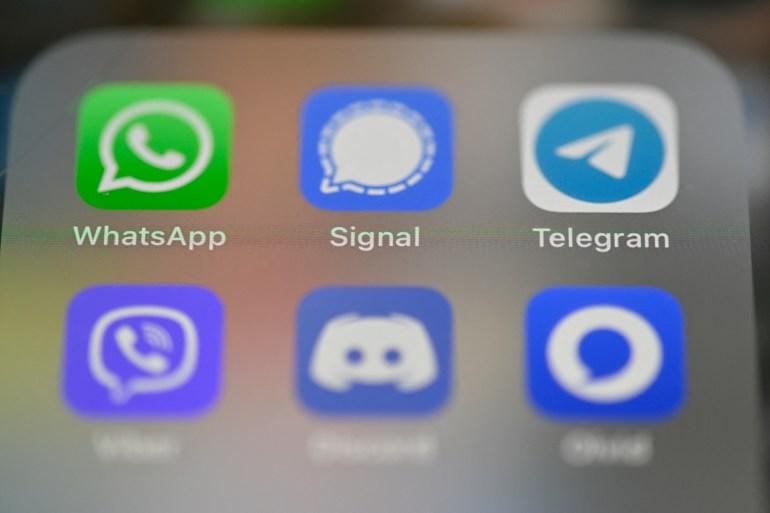Source: ALJAZEERA
ALJAZEERA MEDIA NETWORK

EU member states to decide on Chat Control 2.0, a proposal to scan encrypted messages for child sexual abuse content.
The European Union is deliberating over controversial plans to conduct mass scans of private communications on encrypted messaging apps, targeting child sexual abuse material.
The proposed legislation involves an AI-powered algorithm that would scan images, videos, and links sent on platforms like WhatsApp and Signal, cross-referencing them with a government-maintained database of known abusive content.
The Council of the EU, one of the bloc’s key legislative bodies, is set to vote on the proposal, known informally as Chat Control 2.0, on Thursday.
Should the council, representing the governments of the EU's 27 member states, approve the legislation, it will advance to the next legislative phase, where the details of the law will be negotiated.
While EU authorities argue that Chat Control 2.0 is meant to combat child sexual exploitation, privacy advocates and encrypted messaging services have heavily criticized it, drawing parallels to George Orwell’s dystopian surveillance from his novel, 1984.
Detractors argue that Chat Control 2.0 undermines the principles of end-to-end encryption, designed to make messages readable only by the sender and recipient.
The proposed system, which entails “upload moderation,” would scan messages before they are sent. Critics argue that this method essentially creates a “backdoor” that could expose communications to hacking or interference by third parties.
“Regardless of whether it’s called a backdoor, a front door, or ‘upload moderation,’ every approach introduces a vulnerability that can be exploited by hackers and hostile entities,” said Meredith Whittaker, president of Signal, in a recent statement.
Opponents also caution that the proposals would allow private companies, many of which are U.S.-based, to engage in the mass surveillance of European citizens.
Matthew Green, applied cryptography expert at Johns Hopkins University, warned that a backdoor for scanning could be repurposed to monitor other types of content.
“Chat Control is not just about certain crimes. It’s about an architectural shift that enables mass surveillance of private messaging. This system could be used for any purpose once in place,” Green explained on a social media post.
Patrick Breyer, a Member of the European Parliament from the Pirate Party Germany, compared the proposals to implanting government spyware in every device across the EU.
“We are on the brink of establishing a surveillance regime as extreme as any seen in the free world. The EU’s plan is more intrusive than measures seen in Russia and China,” Breyer stated.
The idea of scanning private messages for child sexual abuse material was first introduced by Ylva Johansson, European Commissioner for Home Affairs, in 2022. Belgium, currently leading the council, proposed the latest version after more invasive measures met resistance.
In its current form, the scans would be limited to photos, videos, and URLs, and users would need to consent. Those who refuse would be blocked from uploading or sharing images and videos.
Proponents assert the measures are essential to tackle child exploitation, noting that encrypted platforms and AI-powered image generation software are aiding offenders.
In 2022, the U.S. National Center for Missing & Exploited Children reported that 68% of the 32 million cases of child exploitation materials from service providers came from the EU.
The Internet Watch Foundation in the UK similarly identified the EU as the origin of two-thirds of abusive content.
Law enforcement and intelligence bodies have long been concerned about criminals leveraging encrypted services to avoid detection. Encrypted apps like Telegram and Signal have been utilized by groups like ISIL (ISIS) and the Oath Keepers.
Leaked documents reveal that intelligence agencies, militaries, police, and select EU ministries would be exempt from these measures.
Among EU nations, Germany, Luxembourg, the Netherlands, Austria, and Poland have openly opposed the measures, with countries like Italy, Finland, Sweden, Greece, and Portugal yet to declare their positions.
MEPs from various nations have voiced their concerns, arguing that surveillance should be targeted and based on judicially approved probable cause.
In November, the EU Parliament voted against "indiscriminate chat control," advocating for targeted measures
Tech firms and digital rights organizations such as Mozilla, Signal, Proton, the Electronic Frontier Foundation, and the Internet Freedom Foundation oppose the plans. Edward Snowden, former NSA contractor, described the proposals as a “terrifying mass surveillance measure.”
Experts argue that the current version of the law, supported by Belgium, would be challenging to enforce without compromising the integrity of end-to-end encryption.
The UK, having passed a similar Online Safety Bill, admitted that the technology to scan encrypted messages without security risks does not yet exist.
Signal and WhatsApp’s threats to exit the UK marked a partial victory for the tech platforms.
Critics also assert that focusing on messaging apps is ineffective in curbing child exploitation, given private networks and the dark web's existence.
AI-based tools have been known to err, leading to wrongful accusations. In 2022, a Google AI tool mistakenly flagged a photo of a boy’s medical condition as abusive, prompting a police probe and account suspension for the concerned father.
Your email address will not be published. Required fields are marked *